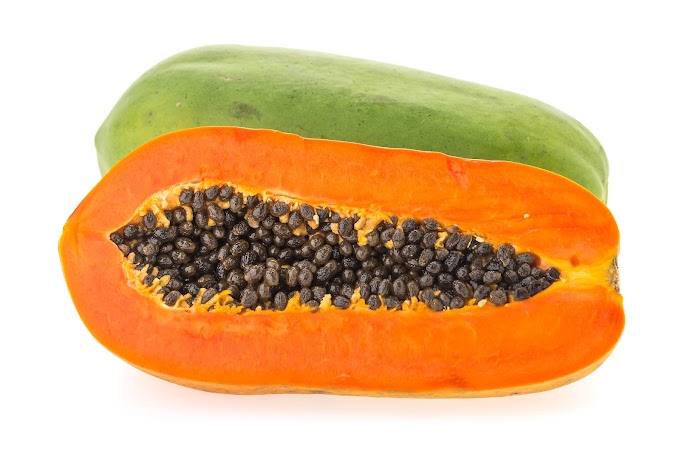Carrots:Nutrition,Benefits,Risks & Preparation
I. Introduction
A. Brief overview of carrots
In the same family as parsley, celery, and fennel is the root vegetable known as the carrot, or Apiaceae. But, they may also be found in different hues including purple, red, white, and yellow in addition to their usual orange tint.
B. Importance of carrots in human diet
Since they are an abundant source of vitamins, minerals, and fiber, carrots are a crucial component of the human diet. They are also low in calories and offer a number of health advantages, including as better vision, a lower risk of cancer, enhanced heart health, better digestion, and higher immunity.
II. Nutritional benefits of carrots
A. Carrots are rich in vitamins and minerals
- Vitamin A: The substance beta-carotene, which the body transforms into vitamin A, is particularly abundant in carrots. The immune system, skin, and eyesight all need vitamin A to be healthy.
- Vitamin K: Vitamin K, which is crucial for healthy blood coagulation and bones, is also present in carrots in good amounts.
- Vitamin C: Vitamin C, an essential antioxidant that promotes immune health and assists in cell protection, is present in carrots.
- Potassium: Potassium, which is essential for preserving a healthy blood pressure and cardiac function, is found in plenty in carrots.
- Fiber: Dietary fiber, which can aid in regulating digestion and fostering sensations of fullness, is a good source in carrots.
B. Antioxidant properties of carrots
Beta-carotene, the antioxidant that gives carrots their orange color, is also abundant in carrots. Free radical damage to cells, which can lead to chronic illnesses like cancer and heart disease, is lessened by antioxidants.
C. Health benefits of carrots
Carrots provide a number of health advantages, such as:
- Improved vision: Beta-carotene, which is necessary for good vision, is especially abundant in carrots. Age-related macular degeneration and other visual issues may be avoided by eating carrots.
- Reduced risk of cancer: Carrots include antioxidants that may help fight cancer by reducing DNA and cell damage.
- Improved heart health: Carrots' potassium and fiber content helps lower cholesterol and blood pressure while lowering the risk of heart disease.
- Improved digestion: Carrots include fiber that helps support healthy digestive habits and stave against constipation.
- Boosted immunity: Carrots are a good source of vitamin C, which supports immunological health and may help guard against infections and disease.
III. Risks associated with carrots
A. Carrot allergy
Carrots may induce an allergic reaction in some people, which might result in symptoms including breathing difficulties, swelling, and itching. Although allergies to carrots are not widespread, persons who have allergies to other members of the Apiaceae family of foods may be more susceptible to carrot allergies.
B. Overconsumption of carrots
Carrots are a wholesome meal, but eating too many of them might have some negative effects. Carrots contain a lot of beta-carotene, and eating too much of it can result in carotenemia, which causes the skin to become yellow. Also, eating a lot of carrots might cause digestive problems including bloating and diarrhea.
C. Harmful pesticides
Pesticides, which may be dangerous to human health if consumed in significant amounts, are occasionally applied on carrots. When eating carrots, be sure to give them a thorough wash to lower the chance of pesticide exposure. Carrots that are organic might also lessen your exposure to pesticides.
Nevertheless, the hazards of eating carrots are small in comparison to the many health advantages they provide. However, those who are allergic to carrots or who consume a lot of carrots should use caution, and it's crucial to pick carrots that are free of dangerous chemicals.
IV. Preparation and consumption of carrots
A. Raw consumption
Raw carrots can be eaten as a salad ingredient or on their own as a snack. Since they are sweet and crisp, raw carrots are a preferred snack food.
B. Cooked consumption
Moreover, there are other methods to prepare carrots, including:
- Steaming: Carrots may be prepared quickly and healthily by steaming them. Just cook them till soft by placing them in a steamer basket.
- Boiling: Carrots can also be cooked simply by boiling them. Just cook them till soft in a saucepan of boiling water.
- Roasting: It tastes great to roast carrots in the oven to bring out their inherent sweetness. Add spices and olive oil, toss, and roast in the oven for a delicious, caramelized result.
- Stir-frying: Carrots may be prepared quickly and easily by stir-frying them. Just heat some oil in a skillet, add carrots and other veggies, and stir-fry for a few minutes until they are soft.
C. Carrots in recipes
A versatile vegetable, carrots may be used in a wide range of dishes, including:
- Carrot cake: Carrots are a crucial component of carrot cake because they give the cake a natural sweetness and wetness.
- Carrot soup: A tasty and healthful way to consume this nutrient-dense vegetable is in carrot soup. Carrots are simply cooked in broth with spices, then blended until smooth.
- Carrot juice: A common beverage that may be prepared by juicing carrots and other fruits and vegetables is carrot juice. It's a wonderful way to experience the health advantages of carrots in a pleasant and refreshing beverage.




0 Comments